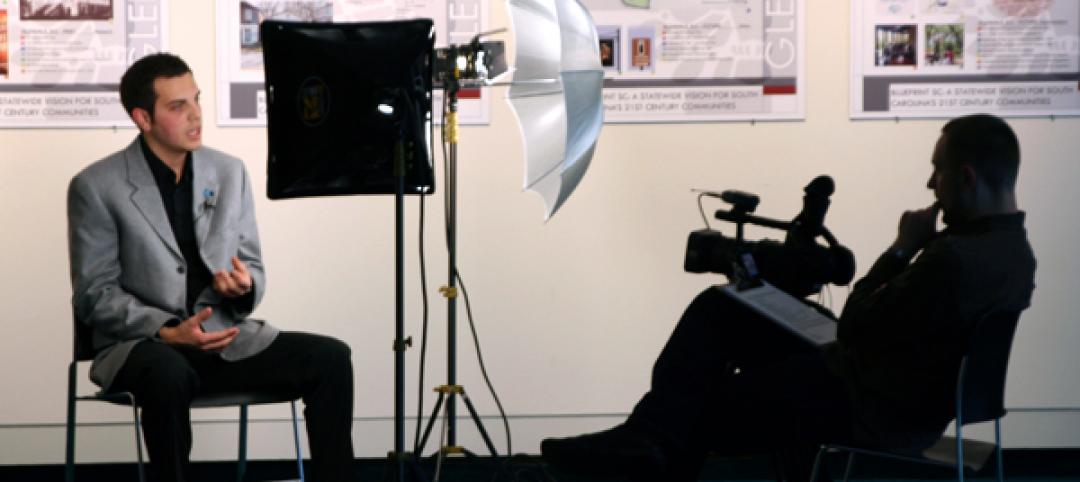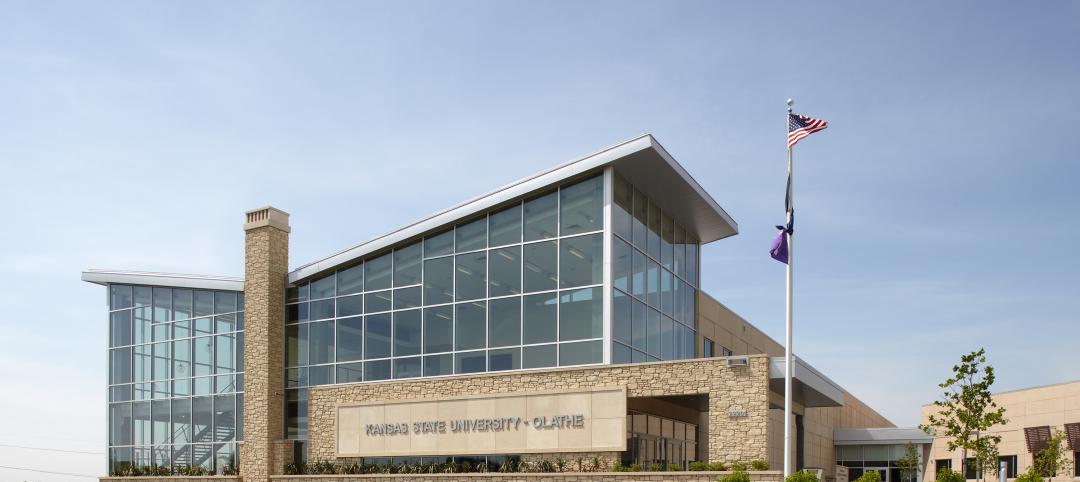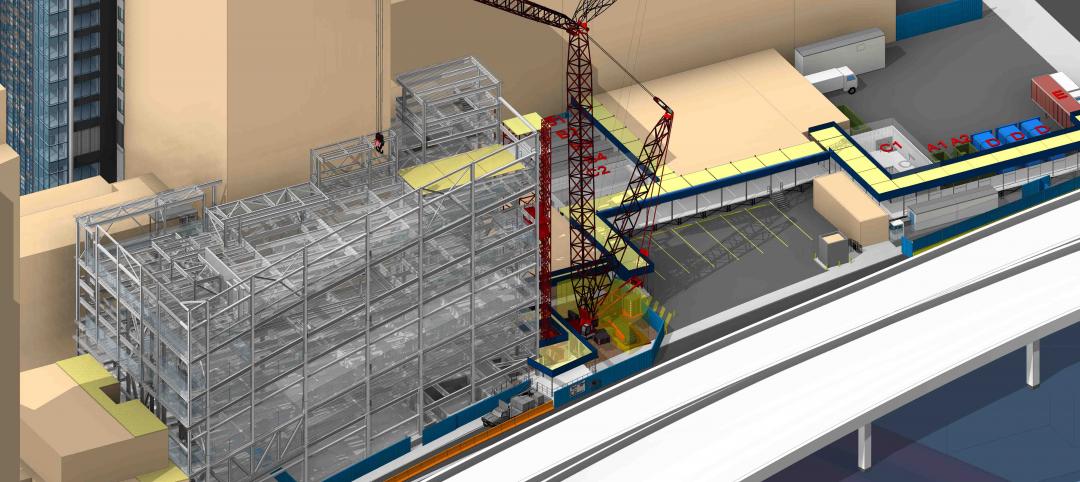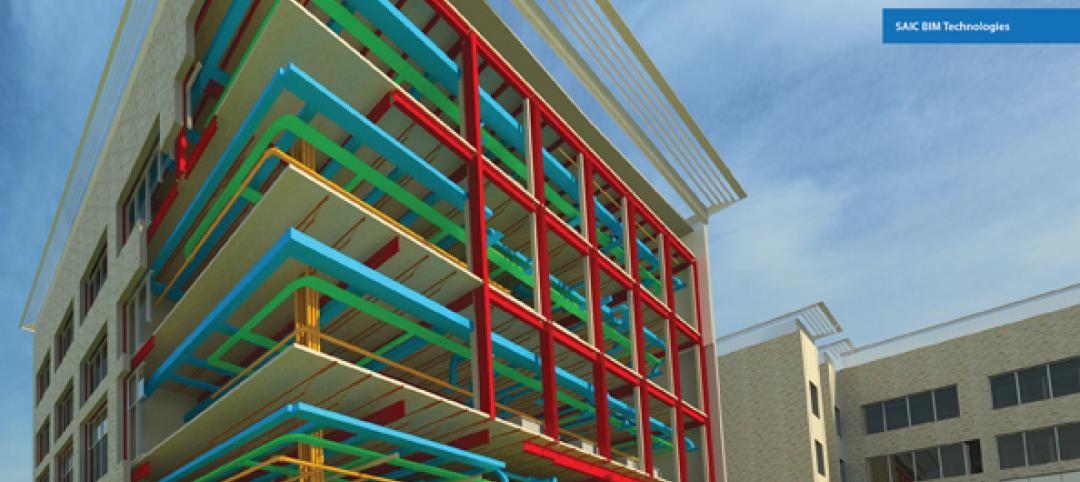Since 1950, the College World Series has been played in Omaha, Neb., the only NCAA event that has stayed in one location for over 60 years. Over the course of six decades, the community of Omaha has developed strong emotional ties to the College World Series as well as to its home field, Rosenblatt Stadium.
Originally built for minor league play in the 1940s, in recent years Rosenblatt Stadium had begun to shows its age, and patchwork renovations could not improve it enough to satisfy the demands of fans, the NCAA, and CWS broadcast partner ESPN.
As the contract for the College World Series came up for renewal, the city formed a committee to evaluate whether to try to reconstruct Rosenblatt Stadium or build new on one of eight potential new sites. Once it was determined to build new and a site was selected, the Building Team, led by local A/E firm HDR Architecture Inc., in collaboration with Populous, Kansas City, Mo., worked with the owner, the Metropolitan Entertainment and Convention Authority (MECA), to refine the ballpark’s final programming and design.
SPEEDING DOWN THE BASEPATHS
The new stadium had to be ready by April 2011 for the first pitch of the 2011 College World Series, which put the project on a 28-month construction schedule. To keep up the pace, members of the local GC/CM firm Kiewit Building Group moved into the HDR Omaha office. HDR and Populous collaborated on the design process, which involved meeting the needs of ESPN, the city of Omaha, MECA, and the College World Series of Omaha.
Project summary
SILVER AWARD
TD Ameritrade Park, Omaha, Neb.Building Team
Submitting firm: HDR Architecture Inc. (AOR, structural/ME engineer)
Owner/developer: Metropolitan Entertainment & Convention Authority
Architect of MEP coordination: DLR Group
Sports architect: Populous
Consulting structural engineer: Thornton Tomasetti
ME consulting engineer, plumbing engineer: M-E Engineers Inc.
GC/CM: Kiewit Building GroupGeneral Information
Size: 253,638 sf enclosed, 597,458 sf including concourse
Construction cost: $91 million
Construction period: January 2009 to April 2011
Delivery method: CM at risk
The structural program called for the stadium to be separated into two parts, the grandstand and the lower seating bowl/outfield area. This division allowed two teams to work on the structure simultaneously during the design development phase, which saved considerable time.
The Building Team incorporated a mechanically stabilized earth wall system to retain the lower seating bowl earth fill, in lieu of a system of structural concrete retaining walls and footing. This option alone saved the project over $500,000.
“The construction of this stadium was a feat to pull off so quickly and the coordination between infield and outfield was challenging,” said Building Team Award Judge Timothy Brown, AIA, studio associate professor and director of international affairs, Illinois Institute of Technology.
MEETING THE NEEDS OF NUMEROUS PLAYERS
Unique in capacity and character, TD Ameritrade Park was built as a hybrid to accommodate not only NCAA Division I requirements for baseball but also music festivals, football, and even ice hockey.
“The Trade,” as it has come to be known, opened to a sellout crowd on April 19, 2011 (Nebraska 2, Creighton 1). The 24,000-seat stadium has the cozy feel of a minor league park but is loaded with the amenities of a Major League Baseball stadium: 26 suites, four team clubhouses, administrative offices, 5,000 sf of retail space, and a continuous 360-degree concourse. Total building area is 597,458 sf, 253,638 sf of which is enclosed.
The Building Team for TD Ameritrade Park competed against a short schedule, on a difficult site, and under public pressure to ensure the College World Series would stay in Omaha. Perhaps the highest compliment of the new park came from two long-time College World Series ticketholders who told NCAA Vice President for Baseball and Football Dennis Poppe, “Mr. Poppe, we came up here just wanting to hate this park, but it’s pretty nice.” BD+C
--
Click here to view exclusive video interviews of the 2012 Building Team Awards judges explaining their selections.
Related Stories
| Jun 1, 2012
Caruso to lead Gensler’s Asia talent development
Caruso will be based in Shanghai and working with the Gensler offices in Japan, China, South Korea, Singapore, Thailand, and India until the spring of 2013.
| Jun 1, 2012
AIA 2030 Commitment Program reports new results
The full report contains participating firm demographics, energy reduction initiatives undertaken by firms, anecdotal accounts, and lessons learned.
| Jun 1, 2012
Robert Wilson joins SmithGroupJJR
Wilson makes the move to SmithGroupJJR from VOA Associates, Inc., where he served as a senior vice president and technical director in its Chicago office.
| Jun 1, 2012
Gilbane Building's Sue Klawans promoted
Industry veteran tasked with boosting project efficiency and driving customer satisfaction, to direct operational excellence efforts.
| Jun 1, 2012
Ground broken for Children’s Hospital Colorado South Campus
Children’s Hospital Colorado expects to host nearly 80,000 patient visits at the South Campus during its first year.
| Jun 1, 2012
K-State Olathe Innovation Campus receives LEED Silver
Aspects of the design included a curtain wall and punched openings allowing natural light deep into the building, regional materials were used, which minimized the need for heavy hauling, and much of the final material included pre and post-consumer recycled content.
| Jun 1, 2012
New York City Department of Buildings approves 3D BIM site safety plans
3D BIM site safety plans enable building inspectors to take virtual tours of construction projects and review them in real-time on site.
| May 31, 2012
Product Solutions June 2012
Curing agents; commercial faucets; wall-cladding systems.
| May 31, 2012
8 steps to a successful BIM marketing program
It's not enough to have BIM capability--you have to know how to sell your BIM expertise to clients and prospects.
| May 31, 2012
3 Metal Roofing Case Studies Illustrate Benefits
Metal roofing systems offer values such as longevity, favorable life cycle costs, and heightened aesthetic appeal.
















